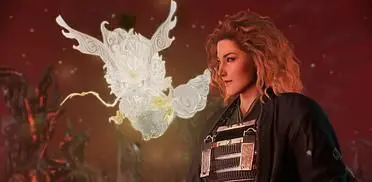They signed a deal in 2006, and it ”was a big thing, we were very excited” said Ellis. The studio was ”probably a year out” from completing it and already they could ”sign up for the sequel.”
It was a ”critical decision” for Free Radical as it meant ”putting all our eggs in one basket.” They took the gamble with LucasArts because it ”seemed like a no-brainer.”
”They were big fans of our work, they liked our take on making games, they liked the way we work and they wanted to do this project,” revealed Steve Ellis, in an interview with GamesIndustry.biz. ”It was a big thing, we were very excited and for a long time it was going very well.” He was discussing the collapse of Free Radical, now Crytek UK.
LucasArts was so close to Free Radical by the end of 2007 that they wanted them to sign on for more Battlefront even before their 2006 agreement was completed. ”We were still at that time probably a year out from completing and releasing the first game and they asked us to sign up for the sequel,” he said.
”That was a big deal for us because it meant putting all our eggs in one basket. It was a critical decision - do we want to bet on LucasArts? And we chose to because things were going as well as they ever had. It was a project that looked like it would probably be the most successful thing we had ever done and they were asking us to make the sequel to it too.”
”It seemed like a no-brainer.”
Leaked internal videos of Free Radical’s Battlefront III leaked onto the Internet. It’s now rumoured that Spark Unlimited is handling the Battlefront series on behalf of LucasArts.
A shift in focus and priority in LucasArts in 2008 and the layoffs meant suddenly the close relationship turned cold. ”The really good relationship that we’d always had suddenly didn’t exist anymore,” continued Ellis.
”They brought in new people to replace them and all of a sudden we were failing milestones. That’s not to say there were no problems with the work we were doing because on a project that size inevitably there will be, there’s always going to be grey areas were things can either pass or fail.”
”And all of a sudden we were failing milestones, payments were being delayed and that kind of thing.”
”It was a change of direction for LucasArts as a company rather than for the games that we were working on. I think what had happened was the new management had been brought in to replace the old and given an impossible mandate. It was a financial decision basically and the only way they could achieve what they had been told to do was to can some games and get rid of a bunch of staff. So that’s what they did but it was quite a long, drawn out process.”
Battlefront 4, 5 and even early prototyping of 6 was canned. The studio took on additional staff to handle the large scope of the LucasArts deal. Activision about this time approached them for a GoldenEye project as they had former Rare developers. ”As you can imagine that was something that was very well-received by a lot of the staff, it was going to be a great project to work on,” said Ellis.
”But as we jumped at the opportunity it suddenly disappeared. We never got a real explanation about why it disappeared. I suspect it was to do with rights about which platforms a GoldenEye sequel could be released on.”
Thankfully, while Free Radical Design did collapse, it was ‘saved’ by Crysis creator Crytek as they renamed the British studio Crytek UK and was able to keep on game developers. Check out the full interview between Steve Ellis and GamesIndustry.biz, discussing the end of the TimeSplitters creator.





